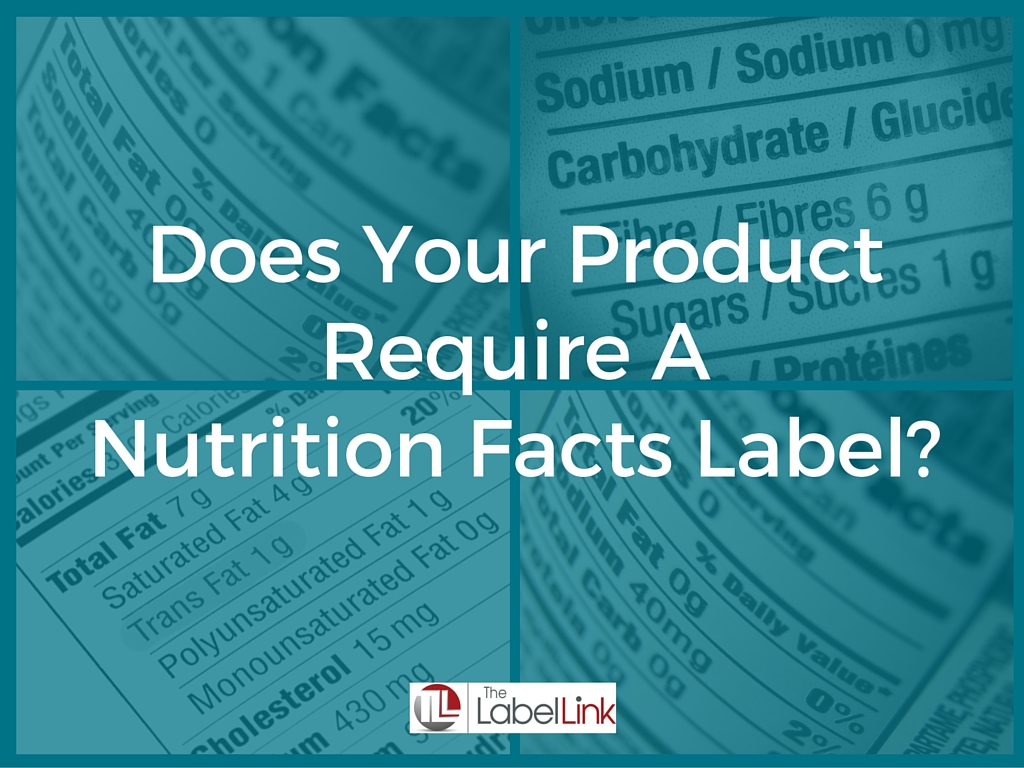
Surprise! You Might Not Need a Nutrition Facts Label
Regulations stifle small business growth. Still, regulations are imperative when it comes to certain products. Packaged foods and dietary supplements are one of those product categories.
The Food and Drug Administration (FDA) requires most manufacturers to have a nutrition facts label on their product. There is a standard formula for this label where you must include specific information such as calories, grams of fats, proteins and carbohydrates, and how it all breaks down in percentages for average recommended daily calorie consumption. Check out all of the nutrition label requirements for details.
For small businesses, investing in adding these nutrition facts labels can be tough. That’s why the FDA has given some flexibility to the types of companies that must provide this information on their labels. And, surprise! Your small business could be exempt. You might not need a nutrition facts label after all.
Here are the two types of exemptions the FDA offers and how to apply for an exemption (if you must).
Exemption 1: Low Volume Products
If your company does not produce large quantities of your product, you might be exempt from having a standard nutrition facts label.
There are a few considerations the FDA makes when distinguishing whether you have a low volume product. This includes:
- Employing fewer than an average of 100 full-time employees;
- Selling fewer than 100,000 units of product in the United States in a 12-month period;
- Making no nutritional claims.
The full-time employees exemption can get a little bit tricky. The FDA wants you to employ fewer than an average of 100 full-time equivalent employees. That means if you primarily employ part-time employees, especially those that work between 20 and 30 hours per week, you could be at risk of losing your exemption.
Making nutritional claims is also ambiguous. If you’ve created a product that’s high in protein, you might want to think twice about how you market it. Sure, you could reach a larger audience by saying it’s high protein, but you will also undoubtedly lose your exemption.
Exemption 2: Annual Gross Sales Below a Certain Threshold
Another way the FDA will consider your product exempt from having to include a nutrition label is if you’re a retailer with fewer than:
- $500,000 gross annual sales OR;
- $50,000 annual gross sales of food or dietary supplements to consumers.
You’re Not Automatically Exempt – Even When You Meet These Qualifications!
Although you might meet these qualifications, you shouldn’t assume your products are automatically exempt. Some require you to file a notice with the FDA.
The FDA requires you to submit an exemption notice for low volume products. If your sales fall below the annual gross sales of exemption number two, you do not need to file an exemption.
Filing for an exemption is not hard. You can do this in two ways:
- Online using the FDA’s web-based submission form.
- On paper by either mailing or faxing your submission form.
The web-based submission form is generally preferred but any one will work.
Question: Are you planning to file for exemption from needing a nutrition facts label?
Many businesses opt to include some version of a nutrition facts label, even when they could technically file for exemption. This is because consumers like seeing what ingredients are in a product and the breakdown of calories, fats, carbohydrates and proteins. Although your nutrition facts label might not be exactly what the FDA requires, if you’re exempt, it’s still a good idea to include some insight into what you’re selling to your buyer. This can help boost credibility and spur sales.
Talk to us about your experience filing for exemption and/or placing a nutrition facts label on your product, even if you don’t need one. We’d love to hear your story in the comments below.
